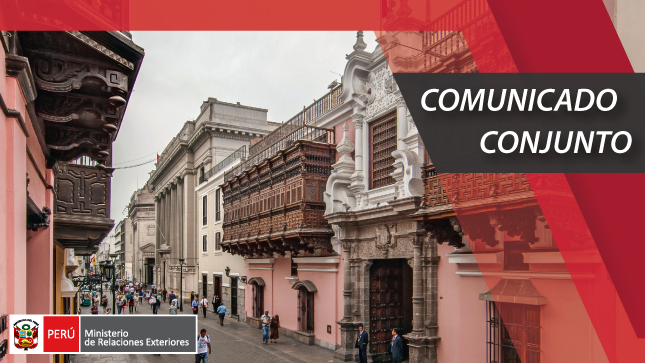The member States of the Quito Process advocated for a new narrative for Venezuelan refugees and migrants. The group met in Santiago, Chile, on March 15, and presented a joint declaration before the International Conference of Solidarity with Venezuelan refugees and migrants, their host countries and communities, which took place on March 16 and 17 in Brussels
The member States of the Quito Process advocated for a new narrative for Venezuelan refugees and migrants. The group met in Santiago, Chile, on March 15, and presented a joint declaration before the International Conference of Solidarity with Venezuelan refugees and migrants, their host countries and communities, which took place on March 16 and 17 in Brussels.
The bloc emphasized “the need to move towards a new migration narrative, one that manifests the benefits and opportunities that human mobility represents for our region, promoting social cohesion, combating xenophobia, addressing the needs of host communities, and strengthening bilateral, regional and international cooperation.”
The Quito Process, made up of 13 countries of the Americas, is an initiative that seeks to coordinate actions for the reception of Venezuelan migrants across the continent. The member States are Argentina, Brazil, Chile; Costa Rica, Dominican Republic; Ecuador; Guyana; Mexico, Panama; Paraguay, Peru and Uruguay.
The declaration highlighted that international cooperation is fundamental “to face the challenges posed by human mobility in our region. Multilateral participation instances, are favorable spaces for the promotion of the respect for human rights, democratic values, and the search for joint, responsible, and solidarity-based solutions.”
The group maintains that human mobility processes represent an opportunity to strengthen international dialogue and develop public policies in favor of the development and integration of refugees and migrants in their host communities.
When analyzing the situation of migrants, the countries of the Quito Process indicate that the challenges derived from human mobility in the region are multiple and that their comprehensive approach “requires a bilateral, regional and international commitment to cooperation and coordination, based on the principle of shared responsibility and respect for human rights”.
For this reason, the group advocates coordinated actions to combat transnational crimes such as human trafficking and the smuggling of migrants, as well as other related situations that put the integrity and lives of refugees and migrants at risk.
The declaration also calls to increase technical and financial aid efforts; strengthen cooperation alliances with all actors in order to maintain the international visibility of the human mobility crisis facing the Latin American region. and contribute to the efforts made by the host countries for the humanitarian attention and integration of the refugee and migrant population.
The Quito process welcomed the more than $2.35 billion pledged at the 2021 Donor Conference to support the response to the situation of refugees and migrants from Venezuela.
“While we note that most of these commitments were directed towards humanitarian interventions, and we recognize the importance of a coordinated and efficient humanitarian response, we must move towards a sustainable integration strategy in host countries and communities to fill existing gaps in technical and financial cooperation”, the group emphasized.
Read the full declaration HERE.
Translated by José Rafael Medina




